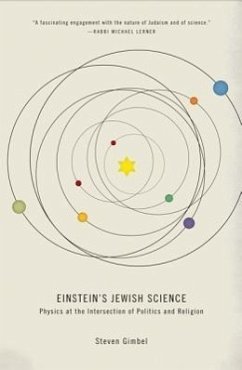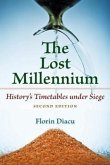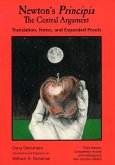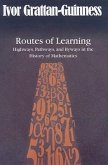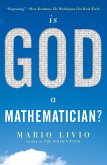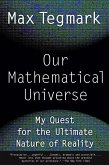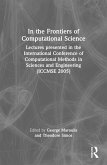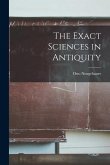The Nazis denigrated Albert Einstein's theory of relativity by calling it "Jewish science," a charge typical of the ideological excesses of Hitler and his followers. Philosopher of science Steven Gimbel explores the many meanings of this provocative phrase and considers whether there is any sense in which Einstein's revolutionary theory is Jewish. Arguing that we must take seriously the possibility that the Nazis were in some measure correct, Gimbel examines Einstein and his work to explore how beliefs, background, and environment may--or may not--have influenced the work of the scientist. You cannot understand Einstein's science, Gimbel declares, without knowing the history, religion, and philosophy that influenced it. "To understand Gimbel's argument about the Jewish quality of Einstein's approach--and to perceive the boldness of Gimbel's decision to re-examine twentieth-century, anti-Semitic ideas about 'Jewish science'--it's necessary first to understand the historical moment out of which the theory of relativity emerged."--Tikkun "Gimbel . . . takes readers on enlightening excursions through the nature of Judaism, Hegelian philosophy, wherever his curiosity leads."--New York Times Book Review "A fascinating and enlightening discussion of many aspects of the . . . 20th century that examines the many different ways in which one might understand the suggestion that Einstein's physics expresses or reflects something distinctively Jewish."--Physics Today "A lively, intentionally provocative and wholly compelling inquiry into the Jewishness of Einstein himself and the world-changing scientific revolution that he set in motion."--Jewish Journal "Gimbel spins out what could have been a mere provocation into a wide-ranging and entertaining collision of science, history, philosophy, and religion."--Zocalo Public Square "A fascinating engagement with the nature of Judaism and of science. By exploring and, in a sense, redeeming the Nazi accusation that Einstein's relativity theory is 'Jewish science, ' Gimbel not only challenges the racist meanings of that charge but shows how scientific theories must in fact reflect the issues and concerns of the historical periods which give rise to them."--Rabbi Michael Lerner

